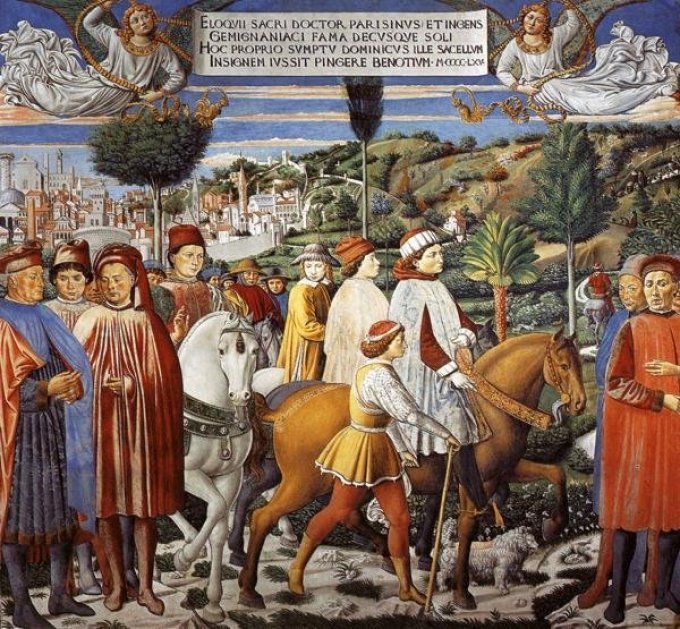A determined pastoral action

The struggles of a bishop
Augustine's work and knowledge are duly valued. Valerius, Bishop of Hippo, appoints him coadjutor to the bishop in 395. When Valerius passes away, one year later, Augustine becomes a full bishop. The workload is massive: the Church is affected by the Donatist schism. Donatists consider themselves the only authentic interpreters of the Tradition. They are rigorists and define themselves as pure and righteous. In 411, the Donatists are condemned and outlawed by the council of Carthage. The Donatists are persecuted by the Roman authorities to such a degree that Augustine protests their treatment.
Augustine calls tirelessly for the unity of the Church and her reconciliation. He even opens his door to a separatist clergy. His action, sadly, yields no results. At the same time, an Irish monk by the name of Pelagius is stirring up trouble: Pelagius believes that man is entirely free, capable of choosing between good and evil and to observe the law of God all by himself, without divine aid. Sin is a matter of will and not of nature, and it is a choice that can be reversed. Baptism provides enough strength to exercise self-control and reject evil, thus earning salvation. Whereas for Augustine, human freedom is not enough by itself to reach perfection: grace is necessary, sin is inherent to the nature of man (original sin), and man needs to humbly accept the faith in Jesus Christ Savior and is in constant need of the Church's guidance and absolution. There is no salvation without God's grace and the sacrament of the Church, as human will cannot resist the untamable compulsions. Augustine doesn't get out easily from this controversy, but Pelagius ends up being condemned by the Council of Carthage.
Soon, the debate resumes with Julian of Eclanum, a Pelagian leader. He is young and bright and forces an aging Augustine to face some of his own contradictions in his writings. Waging this war against Julian took on toll on Augustine's morale. On August 24, 410, Rome is attacked by the troops of Alaric. The city is pillaged for three days, and many of the city's magnificent buildings are ransacked. Many citizens are taken captive, including the Emperor's sister. Some would be ransomed; others sold into slavery, others raped and killed. Refugees flooded the province of Africa. The Pagans blame the Christians, saying that their God didn't protect them.
Augustine attempts to console the Christians and emphasizes the fact that even if the earthly Empire is defeated, it is the City of God that would ultimately triumph. He invites the Christians to be concerned with Heaven and Eternal Life, rather than with earthly politics. This is when he writes his book "The City of God."
To be continued...
Prayer for the vocations
Augustine didn't keep for himself his experience of God. Thanks to the call of the Christian communities, he became an apostle.
Lord our God, enlighten the heart of those who are tempted to keep for themselves the treasure of faith. Grant our communities to know how to promote and encourage holy vocations, so that everyone may become, at his or her level, an apostle of your Good New.
Through Jesus Christ our Lord, Amen
Artwork: Mural art by Benozzo Gozzoli, 15th century. St. Augustine Chapel, San Gimigniano, Tuscany.
Thank you! 59 people prayed
Let your speech always be gracious, seasoned with salt, so that you may know how you ought to answer everyone. Col 4:6